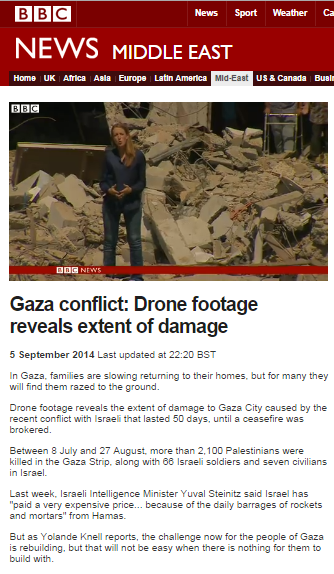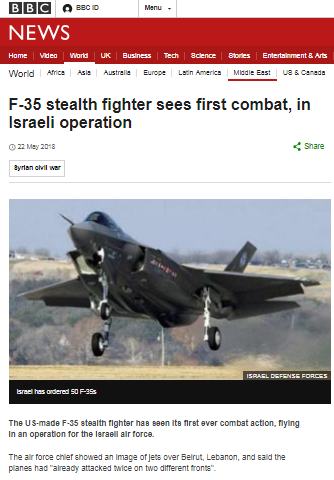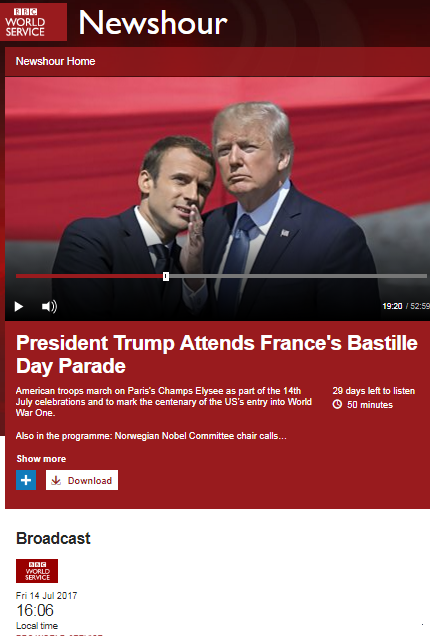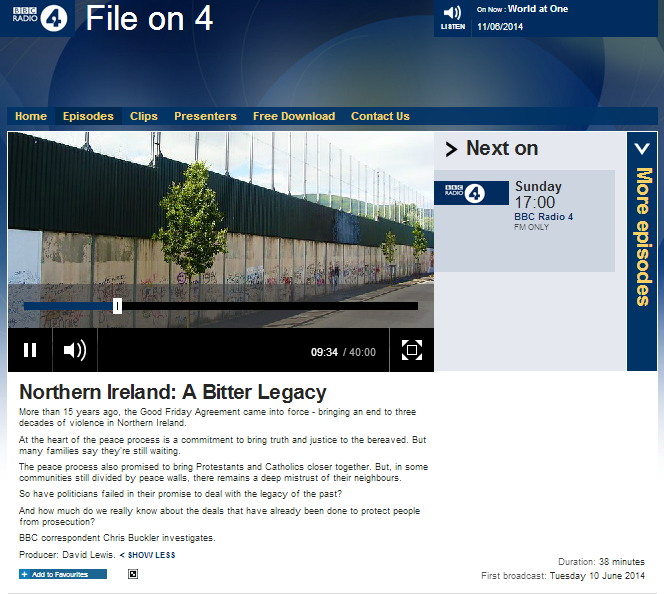Last week we discussed several reports produced by Jeremy Bowen during the time he recently spent in and around Damascus and took note of the fact that BBC audiences were provided with a very one-sided portrayal of the situation in Syria which exclusively reflected the Assad regime’s interests.
One feature seen in that round of reporting by the BBC’s Middle East editor was unchallenged amplification of a Syrian government deputy minister’s claim that the regime had never targeted its own civilian population. In that and all of his later reports Bowen failed to inform audiences of the fact that there is ample evidence to contradict that claim.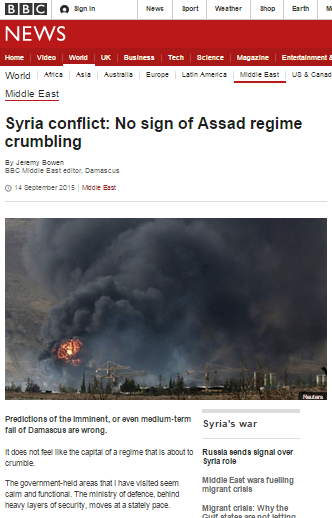
After having left Damascus, Bowen produced some further reports. A written article titled “Syria conflict: No sign of Assad regime crumbling” appeared on the BBC News website’s Middle East page on September 14th. At least in that piece (in contrast to the reports produced previously) the man whose job title was created with the aim of “providing analysis that might make a complex story more comprehensive or comprehensible for the audience” finally got round to making a brief mention of the support supplied to the Assad regime from Iran and its Lebanese proxy.
“But President Assad has his vital trio of supporters: Russia, Iran and Hezbollah from Lebanon. Russia seems to be increasing its military support for the regime.
Hezbollah men are fighting along the border with Lebanon. Iran provides vital financial and military assistance.”
However, Bowen managed to place the responsibility for the Syria refugee crisis at the door of parties other than Bashar al Assad.
“The war exports trouble, violence and refugees. Half of Syria’s pre-war population has fled from the fighting. Eight million are still in Syria, displaced, refugees in their own country. Four million have left Syria.
Britain and others hoped that helping with a relief effort for refugees would encourage them to stay put.
But hopes among refugees that the war would end relatively quickly disappeared as the killing went on. […]
It was even worse when it sunk in that they might face years more in camps in Jordan and Turkey, or even worse, in informal shanty towns and the slums of Lebanon.
What made matters worse was that the rich countries that funded the relief effort led by the UN agencies have made big cuts to their contributions.”
Bowen also produced two filmed reports for BBC television news – both of which also appeared on the BBC News website. “Syria crisis: Jeremy Bowen on the subterranean battle in Damascus” – September 14th – repeated a theme also seen in Bowen’s above written report.
“They do not look like a beaten army. I think those people who are predicting the fall of the Assad regime once again will once again be guilty – certainly in the foreseeable future – of wishful thinking.”
In a report from the same location dated September 15th – “Syria: On the front line in Damascus” – Bowen once again provided an unchallenged platform for Syrian regime propaganda – this time from an officer in the Syrian Republican Guard.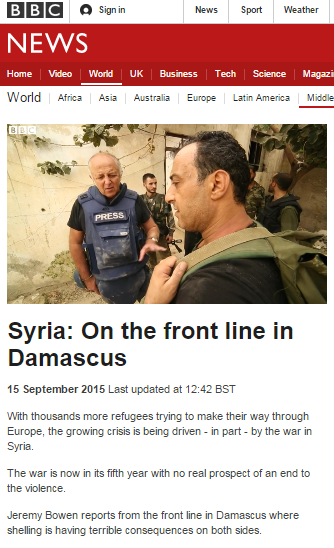
Bowen: “The colonel and his men say they are patriots fighting terrorists. He rejects accusations that the Syrian army targets civilians. The claim is that more civilians are killed by the Syrian army than by any other armed force here in Syria.
Col. Sultan: “This is all propaganda to slander the reputation of the army. It’s all lies. We were brought up not to harm peaceful civilians. We only kill people we see with our own eyes holding a weapon.”
Bowen made no attempt to challenge that obvious falsehood on camera and neither was any qualifying statement reminding audiences of the numerous incidents which contradict Sultan’s claims added to Bowen’s voice-over in later editing.
Interestingly, the keen interest in alleged breaches of the laws of armed combat displayed by Jeremy Bowen in his reporting from the Gaza Strip in July 2014 appears to have completely evaporated upon his arrival in Damascus.

